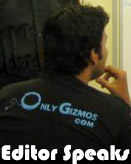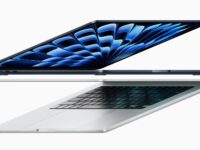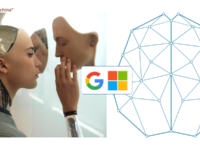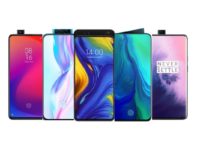 Precap: HP has messed up the Palm acquisition for which it spent over USD 1 billion last year. Rumors about the future of WebOS are plenty. Today marks another chapter in the Palm story, a rumor that raises some hope. Amazon is said to be in race to buyout the remains of Palm & WebOS from HP.
Precap: HP has messed up the Palm acquisition for which it spent over USD 1 billion last year. Rumors about the future of WebOS are plenty. Today marks another chapter in the Palm story, a rumor that raises some hope. Amazon is said to be in race to buyout the remains of Palm & WebOS from HP.
Jon Rubinstien, former CEO of Palm and currently in the midst of the mess HP have created out of its Palm acquisition, is also a board member at Amazon. Something that raises hopes of Amazon absorbing WebOS.
WebOS / Palm didn’t need another owner, it needed an innovator. It didn’t need a big company, it needed a hungry owner. Amazon logically isn’t the best match for Palm or WebOS, but given the mess everyone else is, Amazon is the best environment for webOS. I don’t see webOS playing the hardware game with smart phones and tablets, it wants to sell music, books, apps and everything else available on Amazon.com. If they do end up making a vertical doing that, I am sure they would do a better job than a lot of other players in the market whom you would logically consider the right home for Palm / WebOS.
The Logical Suitors
Samsung has been talked about as a possible suitor for WebOS division of HP, so has been HTC. While HTC is an old player in the smartphones business, Samsung is the hottest in recent years. Both these players are hungry, the handheld business is booming and they certainly would love to own a software platform. In fact Samsung already does Bada OS, which it smartly calls a feature phone replacement and not a smartphone OS. Samsung has it’s own manufacturing of components to backup a software platform and by the looks of it pull off an Apple tree.
HTC on the other hand has an empty plate. They have the hardware, but nothing significant on the software side. We like their Sense UI treatment to Android, but that’s far from owning an OS. Having Dr Dre’s Beat audio is only this good, Sony Ericsson perhaps knows better that music phones won’t win the smartphone race. Going against Samsung, HTC has the same tools, Android + Windows Phone 7. Samsung has the edge, be it the momentum at which it rolls-out products or just the sheer scale of their various hardware businesses. HTC no wonder has been touted as one of the players in race for WebOS.
Both Samsung and HTC are majorly selling Android devices. Owning a software company of WebOS’ calibre hurts their commitment to Android and Windows Phone 7. Google and Microsoft would raise an eyebrow. Add to that the fact that Microsoft has a deal with Nokia and Google owns Motorola.
Why they don’t fit the bill!
Logically both Samsung and HTC make a good buyer for webOS. They are large enough handheld companies and have a enough hunger to do something disrutpive with webOS. However inappropriate it may sound, we would say HTC and Samsung don’t make a great match for webOS, certainly not as good as Amazon. There are several reasons for this. Some because both these companies lack a bit here and there, some because Amazon is just so impressive at things it does.
Samsung and HTC make good hardware, add a good OS like Android and it flies. But the game is changing. Apart from the sheer number of manufacturers making Android devices, there is more to the success Google has seen with it’s mobile OS. Google is a name that attracted developers, it is a software company that can iterate products at a fast pace. Androids development is a testimony to this.
A friend once narrated to us on why Microsoft found it so difficult to compete with Google on the internet. Microsoft makes operating systems, once shipped out, even the smallest of bugs would affect millions of consumers and take a marathon effort to rectify. They have little control over the product once shipped.
Google makes a bunch of browser based online services / tools. They probably fix things even before majority of the users see a glitch. They have the privilege to test upcoming changes with a small percentage of users and roll out over a span of few days or weeks. And they can also take a lot of ideas mainstream and kill them if they don’t work, all without upsetting 98% of regular business.
By design, internet is a different game and Google scored over Microsoft because Microsoft did what it was experienced in, trying to make online tools just the same way it made offline software. Things might have changed now, but Google has taken a huge lead and Microsoft is burning billions on its internet initiatives.
Similarly, a Samsung or HTC aren’t the players that would attract developers, make a killer software development environment and innovate on the UI / OS side. Ask them to strike a killer deal for quad-core CPUs and next-gen display panels, they would do that without blinking, but making a world-class OS, isn’t their cup of tea.
We have seen Nokia / Intel struggle on this front. Right from Moblin+Maemo to MeeGo, they couldn’t deliver. Intel has made tremendous effort to promote apps development for MeeGo and get traction for it’s OS offering, only to end up with another new beginning i.e. Tizen.
The Amazon Promise
If there is a company that has successfully innovated time and again, with great success, it’s Amazon. Be it online shopping, cloud computing, ebooks, ebook readers or a tablet initiative now, Amazon has made an impact in the industry. And none of it ever appeared as a distraction. It extended their reach, created new businesses or fitted into existing models.
With the Kindle Fire, Amazon is the last entrant in the tablet market. But a glance at their offering and you realize the focus with which they have created the product. Months before the Fire came into existence, they had an Android App Store up and running. They created developer relations, gave them business (on some other occasion we may speak about how different is a promising new product against real business, revenues flowing in), got consumers to use their service and then launched an Android tablet without any signs of Google or its UI on it.
Be it the price point or the content offerings, the unanimous opinion is that the Fire would be a success. Such optimism on an upcoming product and hype for the Kindle Fire reminds us of a fruit company making computers. Isn’t the Amazon launch of Kindle touch / Kindle Fire so much Apple like? Deemed success even before launch? Kindle fans cheering and waiting for Kindle Touch? It isn’t raw hype, it is craftsmanship, a product of innovation that Amazon has executed.
When WebOS lands at Amazon, our worry isn’t about the next iteration of Pre or Touchpad. If Amazon is working on it, it is bound to be good. The way Amazon goes by doing things, you know that they would make the best of what WebOS has to offer. It may not be a Galaxy or iPhone killer and neither does it need to be. What we know is, that WebOS would get its due. Its DNA would be preserved and we are excited about what the outcome would be.
Dear Amazon, are you buying WebOS?





